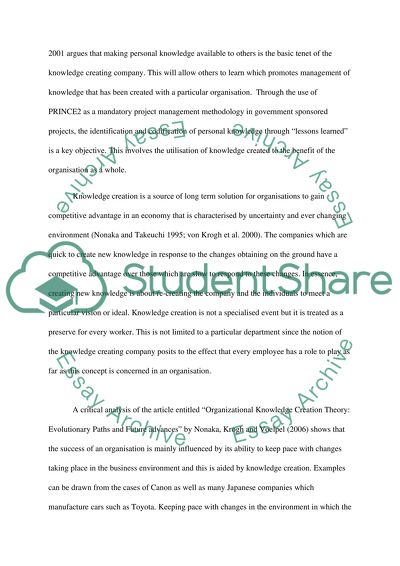Cite this document
(“Knowledge management is an essential tool for organization. Discuss Essay”, n.d.)
Retrieved from https://studentshare.org/environmental-studies/1405992-knowledge-management-is-an-essential-tool-for
Retrieved from https://studentshare.org/environmental-studies/1405992-knowledge-management-is-an-essential-tool-for
(Knowledge Management Is an Essential Tool for Organization. Discuss Essay)
https://studentshare.org/environmental-studies/1405992-knowledge-management-is-an-essential-tool-for.
https://studentshare.org/environmental-studies/1405992-knowledge-management-is-an-essential-tool-for.
“Knowledge Management Is an Essential Tool for Organization. Discuss Essay”, n.d. https://studentshare.org/environmental-studies/1405992-knowledge-management-is-an-essential-tool-for.


